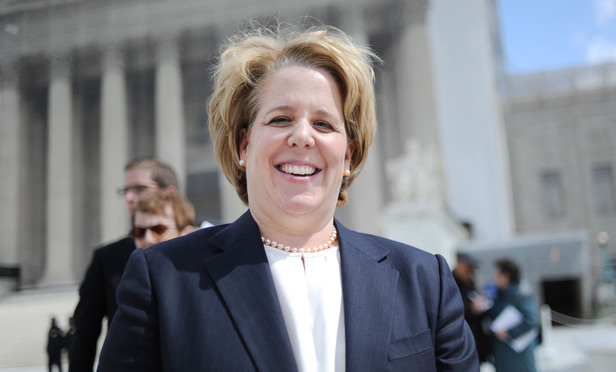It is no small feat for lawyers or a law firm to topple a federal law that writes “inequality into the entire United States Code,” in the words of Justice Anthony Kennedy. But that is exactly what Roberta Kaplan and Paul, Weiss, Rifkind, Wharton & Garrison achieved with the U.S. Supreme Court’s landmark decision last June in United States v. Windsor.
Kaplan, a firm partner, represented Edith Windsor in her challenge to the provision in the Defense of Marriage Act defining marriage as the union between a man and a woman. Windsor was legally married to Thea Spyer. When Spyer died in 2009, leaving her estate to Windsor, the widow was smacked with federal estate taxes of nearly $400,000 — taxes she would not have had to pay had she married a man.
This content has been archived. It is available through our partners, LexisNexis® and Bloomberg Law.
To view this content, please continue to their sites.
Not a Lexis Subscriber?
Subscribe Now
Not a Bloomberg Law Subscriber?
Subscribe Now
LexisNexis® and Bloomberg Law are third party online distributors of the broad collection of current and archived versions of ALM's legal news publications. LexisNexis® and Bloomberg Law customers are able to access and use ALM's content, including content from the National Law Journal, The American Lawyer, Legaltech News, The New York Law Journal, and Corporate Counsel, as well as other sources of legal information.
For questions call 1-877-256-2472 or contact us at [email protected]





